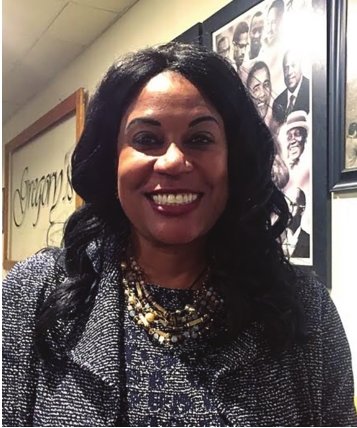 What doors open after Brown Clarke’s loss?
What doors open after Brown Clarke’s loss? What will Judi Brown Clarke do now? Council colleague Patricia Spitzley said Brown Clarke would make “an excellent” state representative. Brown Clarke could not seek reelection to the Council and run for mayor too.
Mark Grebner, a political consultant in East Lansing, said he believes she has the possibility of running for and winning countywide positions or even to replace Schor representing Lansing in the state Legislature.
For his part, Schor said he has not made a decision on whom he will endorse to fill his seat. “I want to wait and see who is in the field,” he said.
Asked directly if he thought Brown Clarke’s political career was over, his response was a direct, and simple response: “No.”
But it’s not that simple. From the beginning, Brown Clarke’s campaign was quixotic and tentative. While she spent the last months of 2016 quietly “considering” a run for mayor, Schor was taking meetings and getting commitments from politicians and donors. It positioned him well, when he announced his bid Feb. 22, to harvest donations, tick off endorsements and build a campaign machine.
Early polling on a potential race among Schor, Brown Clarke and incumbent Virg Bernero showed Bernero losing in a headto-head battle with Schor and put Brown Clarke just six points behind the brash three-term mayor.
But then, in a surprise and still not fully explained move, Bernero announced he would not seek a fourth term as Lansing’s mayor. Brown Clarke, who had been strategically planning an announcement of her intention to run for the office, felt she had to move fast and called a hastily thrown together press conference March 2.
With Bernero out of play, the interest groups like the Greater Lansing Regional Chamber of Commerce and organized labor turned to Schor; effectively depriving Brown Clarke of the financial wherewithal to run a competitive primary or general election campaign.
While she lost the general election, the effort could help her in a run for another position. She came into the race a hot commodity. She’s served fewer than four years on the Council but was elected vice president and then president. On paper, Brown Clarke has the skills to become Lansing’s next mayor. She’s working in science and technology now to increase diversity. She’s worked in the private sector. She’s an Olympic Silver medalist. She was also the first African American woman to seek the Mayor’s Office in the city.
But even an election loss offers some benefits. Brown Clarke from her time on the Council has some name recognition, and her campaign for mayor makes her one of the best known politicians in the Lansing region. It gives her a leg up in what is likely to be a very crowded Democratic primary race to replace Schor. A good start, anyway.
Councilwoman Carol Wood has run for mayor and lost and, in fact, stumbled in her first bid for the Council. Having served with Brown Clark for nearly four years, she said, “It really depends on what she takes away from losing,” “You know, when you’re in the middle of it, you think you’ve got it all there. But when you lose, you have to figure out why you didn’t communicate with the voters, why didn’t your message get out?” But elections are bruising, and Brown Clark’s future in local politics may require some repair work.
Thomas Morgan, another political consultant and a rabid Schor partisan, said she’s a pariah in local politics after a dark-money group sent out mailers attacking Schor on his vote to fund road and bridge repair in Michigan.
“Judi is best known for finishing in second place,” said Morgan, referencing her Olympic Silver medal. “She handled it with a lot more grace and dignity in 1984. Attacking Andy in the last week, when she had zero chance of winning, doesn’t bode well for her future political prospects. Which is too bad, because she could have lost graciously and potentially gotten Andy’s support for the House or countywide office.”
Lansing’s political class may have long memories; voters less so.
Bernero has a long history of ties to a dark-money organization — which don’t have to disclose backers — that has been accused of sleazy political tactics, but it hasn’t necessarily translated into personal electoral hits for him. It has backfired by pushing voters into the hands of the candidate the organization was targeting.
Morgan said without Schor’s support, Brown Clarke would find it difficult to garner support from Ingham County Democrats in a partisan primary.
“Considering he had universal support just about every institution, demographic and constituency,” said Morgan, “it would be very difficult to rebuild any semblance of a political career.”
If she is going to seek another elective office, she’ll have to overcome the negativity caused by one of her biggest supporters: her husband, 54-A District Judge Hugh Clarke.
Morgan and Grebner both noted that the judge was not an asset for her campaign.
“He brings a lot of controversy to the table,” said Grebner. But the long-time political consultant would not provide specific examples. He said the judge was a person who leaves an impression. “I don’t think anyone can think of Andy’s wife calling up a newspaper and yelling at them,” he said, referring to Clarke’s tirade against City Pulse for publishing an image of his wife that he said made her look like a “Sambo.”
Morgan concurred that the judge was a liability for any future political plans she might harbor.
“Her biggest liability was her husband,” said Morgan, who said he liked the judge “personally.” “But he rubs people the wrong way, and he knows it.”
Support City Pulse - Donate Today!
Comments
No comments on this item Please log in to comment by clicking here